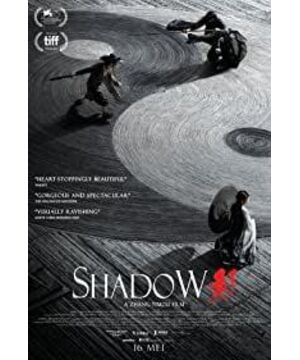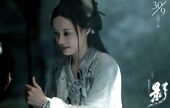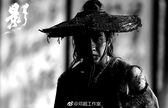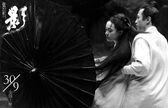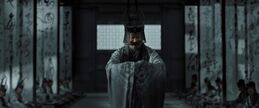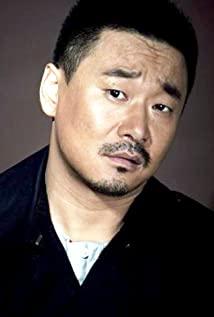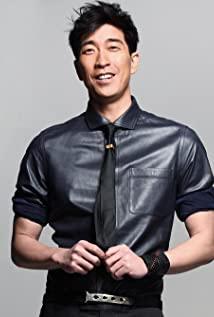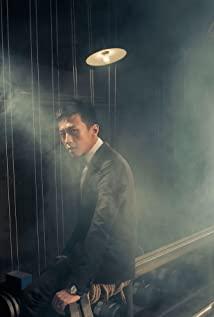"Shadow": A Story of Killing a Father and Marrying a Mother
"Shadow" is Zhang Yimou's new work in 2018. The story takes the Three Kingdoms as the background and tells the story of Ziyu, the governor of Peiguo, who tried to use the "substitute" to regain Jingzhou, and then sought to usurp the throne. After "The Great Wall" was scolded by domestic audiences, Zhang Yimou put the story of "Shadow" on the stage this time. He not only wanted to conquer the audience with black, white and gray ink painting colors, but also mobilized actor Deng Chao's life-long acting skills. "Jingzhou" and "Ziyu", through the method of picture synthesis, play with themselves, physically decolorized clothing, background with clear raindrops under the high-speed camera, let Jingzhou, Ziyu, Xiaoai's body Like a slow-flowing landscape painting, but nonetheless, the use of two controversial young actors, the warm first half, and the questionable details of the progression of the plot have caused the audience to disagree on the film's evaluation . Just in case the visuals overwhelm the story itself, leaving a movie teetering in your heart
The story of "Shadow" is stripped from "Three Kingdoms: Jingzhou". In the film, Jingzhou and Jingzhou, Ziyu and Zhou Yu, Xiaoai and Xiaoqiao, Yang Cang and Guan Yu, Yang Ping and Guan Ping, Peiliang and Zhou Yu Sun Quan, Qingping and Shangxiang can all correspond one by one. It can be said that the background of the three kingdoms' power struggle set the stage for "Shadow", so that the story of this film can be clearly explained in one sentence: to recover Jingzhou, seek power to usurp the throne . Now that the stage is set up, what will the actors do? How should the story be told? Zhang Yimou said in the documentary "Zhang Yimou and His Shadow": He hopes that "Shakespeare" is a tragedy like Shakespeare, but also has the stage sense of Shakespeare. Shakespeare is best at revealing the inner world of characters with monologues, digging deep into the darkness and light of human nature. There are several scenes in "Shadow". Peiliang, Ziyu, and Jingzhou all have large dialogues, and they use dialogues to play back and forth in the same scene. I don't think Zheng Kai is suitable for this kind of staged monologue. There is not much difference between the first scene and the last scene. I saw in him the rambunctious but not the strategy, and the madness to stab the corpse of the traitor with a knife. Lying on the ground vomiting blood for a few minutes, Wu Lei and Guan Xiaotong's true line skills, and dying with a smile in the rain, these pictures cause the audience to laugh in serious places. Hundreds of pseudo-girls entered the Pei umbrella in the shape of a woman, twisting and twisting to win the Jingzhou that Zi Yu had been waiting for for many years. If this plot is put on the stage, I can accept it, but it really can't stand scrutiny in the movie. Deng Chao and Sun Li are really serious couples. One person plays two roles, Zi Yu and Jingzhou. The separation of temperament is obvious. Xiao Ai's forbearance and Zi Yu's madness are very vivid and arresting. Deng Chao and Sun Li Basically hold up the acting of the whole movie.
Zhang Yimou is a master of scheduling, no matter whether the director intends it or not, but in "Shadow" I saw the shell of the Three Kingdoms, the shape of Shakespeare and the soul of Akira Kurosawa.
With the framework of the Three Kingdoms and the stage tension of Shakespeare's plays, Zhang Yimou has to fill in his own dry goods. The core of "Shadow" is similar to Kurosawa's "Shakespeare", which is about the substitution of identity. "If there is no real body, where is the shadow?" This is what Zi Yu, who is the real body, has always believed. In order to recover Jingzhou, Ziyu ordered his stand-in to be "Jingzhou". Jingzhou became Ziyu's shadow at the age of eight. His body replaced the governor on the stage, but his heart was still trapped in the secret room. He had been thinking about his orphan mother from beginning to end. Instead, this concern was regarded as a chess piece, pushing him to a desperate situation step by step. The fullest character in the movie, his revealing of his wife's desire, his reversal of Ziyu's identity as master and servant, and his pursuit of supremacy as a subordinate are all the best in this play, which is why the movie doesn't show it until the end. The reason for the mountain dew, the "smart" we can guess the plot, but it is still good-looking, we like to watch the degenerate, the degenerate drama is the most moving, and the degeneration of the shadow gives you a sense of reason and satisfies our desire hidden under the appearance of civilization. .
Watching this movie is like watching a strip show. The wonderful thing about striptease is that it is very revealing. It makes a little mysterious promise first, and then takes off a little and puts on a little bit. The naked process is slow and poetic. process system, the speed is like the speed of man's fall. There is nothing glamorous in nudity in itself, what is glamorous is depravity. Black itself is not charming, what is charming is the process of falling from white to black and gradually blackening.
There is also a degeneration of a character in the movie, no less than Jingzhou, that is Mrs. Xiao Ai. The movie begins with Xiao Ai and Qingping fortune telling. Xiao Ai said that there is no place for women in this bureau. Since then, the two women have embarked on completely different paths: Xiao Ai is a bystander, walking between the two men, she assists Zi Yu, escapes into Peishan, and resolves the Yang family swordsmanship, she is giving the man Healing, when power changed, she chose to hide behind the door, that is, behind the new patriarchy. As the eldest princess, Qingping killed Yang Ping, who "bullied" her, after being used by her brother (male power). If Laomouzi changed Qingping, we should be able to clearly see his thoughts: one woman tried to resist and lost her position, while another woman hid behind the door and strengthened her position.
"Shadow" also tells a story about killing a father and marrying a mother. The prerequisite for the Oedipus complex is the patriarchal family system. The governor and his master found Jingzhou and raised him in secret. The patriarchal imprisoned Jingzhou, so that he only wanted to find his biological mother in his life, but he did not expect his biological mother to be murdered. In a sense, Zi Yu was the father of Jingzhou, and Jingzhou, who was eager to meet his mother, killed Ziyu, who symbolized patriarchal power, and after getting rid of the imprisonment of patriarchal power, he became a new patriarchal power. Married Zi Yu's wife and made her a substitute for "mother". This undoubtedly adds a potential tragic color to the movie. Zhang Yimou made an easy-to-understand fable. He is constantly doing subtraction, making the best of what he is good at, and using pictures to narrate, allowing the audience to recollect, but the story I really didn't say it well. The combination of Chinese language and vernacular in the lines was not properly combined. I have a great regret in the casting. After watching it, I left more, which is the emptiness after waking up from a dream.
At the beginning of the movie and at the end of the movie, Xiao Ai ran wildly. At the end, she stopped in front of the door and looked at the outside world through the crack of the door. The crack of the door was cut and a beam of light reflected on her face. Her face was half light and half shadow. , the movie came to an abrupt end here, she chose light or shadow in the end, Zhang Yimou didn't seem to make it clear, but light and shadow are the same thing, yin and yang are originally mutually reinforcing, standing in the dark, you see What you get is light; when you stand in the bright spot, what you see is just the projection of desire.
View more about Shadow reviews


